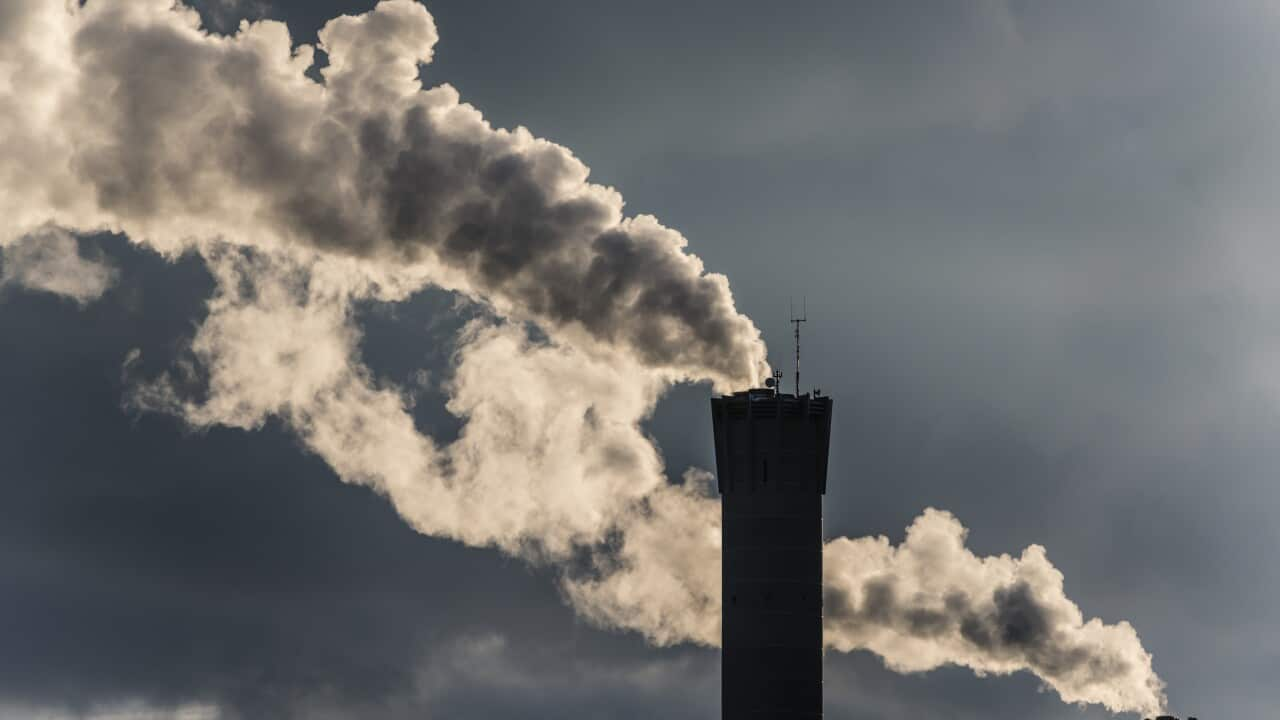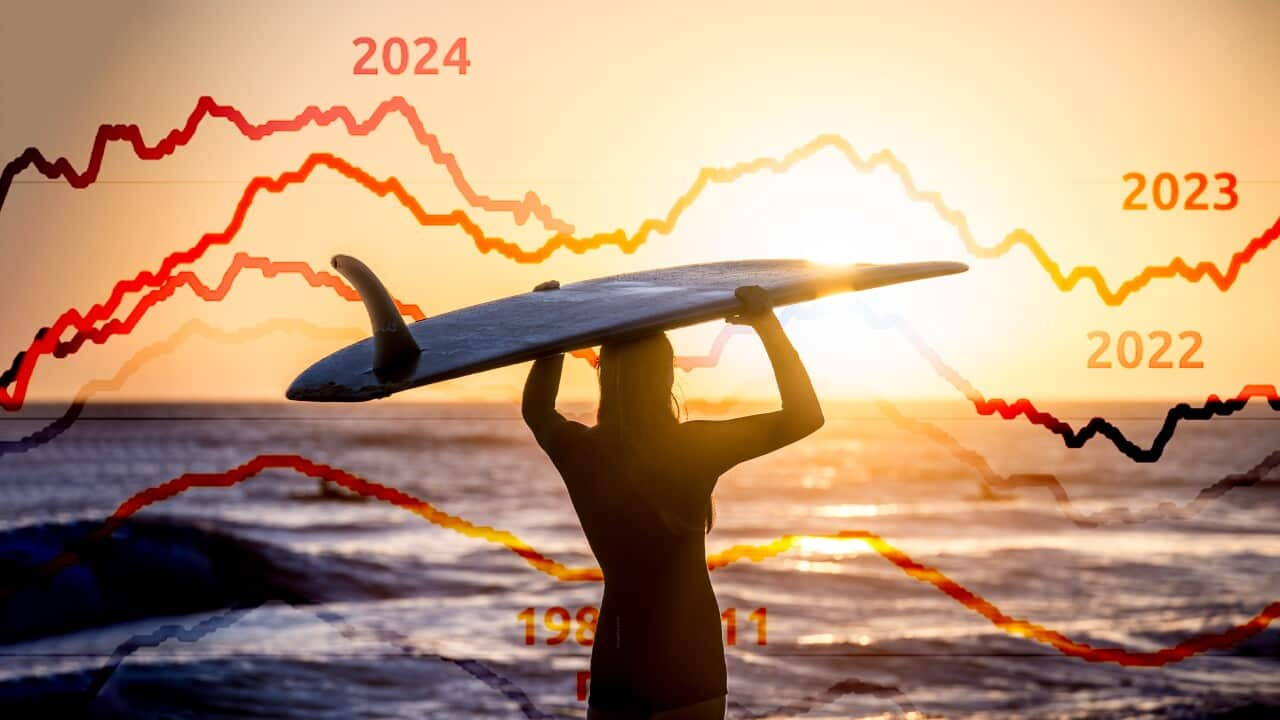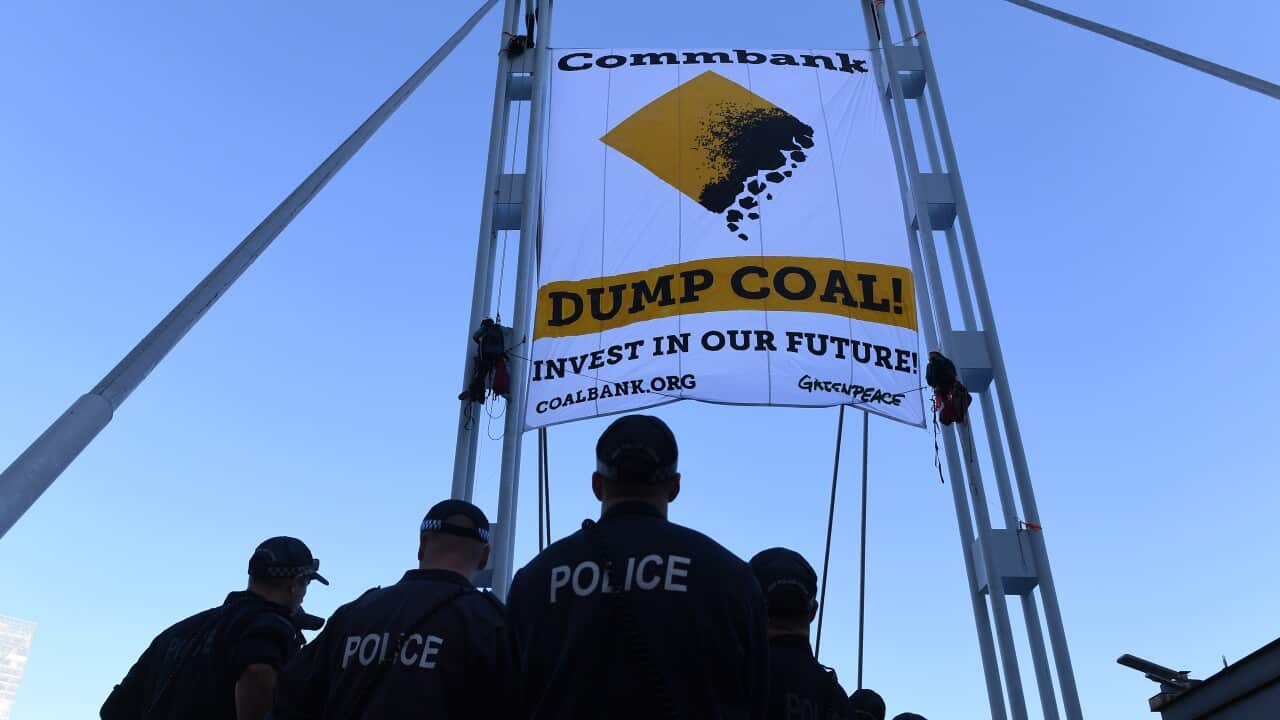Companies not living up to their public environmental claims will be increasingly vulnerable to legal risk, a report has argued.
The report — published by corporate climate action organisation Climate Integrity — suggests there is a misalignment between the public claims of nine of Australia's largest companies and their lobbying activities.
It said such activities, , expose the companies to legal risk for misleading consumers and investors.
However, some companies named in the report have responded and rejected the greenwashing claim.
What is greenwashing?
Greenwashing or 'climate-washing' refers to the gap between promises made and actions taken by companies on environmental and climate goals.
These promises can be made via advertising, branding, labelling or reporting.
Greenwashing allows companies to imply that "everything is taken care of" when it comes to climate change, said Lucy Piper, the director of WorkforClimate, an organisation also focused on increasing corporate climate action.
"I see it as one of the biggest threats to us achieving our climate goals globally and mitigating the worst impacts of climate change because corporations and governments make commitments, they say they're taking all this action on climate, but what is really happening is emissions are going up year on year," Piper said.
Greenwashing has been heavily criticised by the United Nations, with UN secretary-general António Guterres referring to it as "rank deception".
A report published by the UN in 2022 said the threat of greenwashing undermines the efforts of "genuine leaders, creating both confusion, cynicism and a failure to deliver urgent climate action".
Greenwashing also appears to be widespread.
The European Commission estimates that around 40 per cent of environmental claims made by companies in the European Union have no supporting evidence.

Mining groups were identified as some of the companies that could be utilising greenwashing in Australia. Source: Getty / AFP
What action is being taken against greenwashing?
In 2022, the Australian Competition and Consumer Commission (ACCC) put businesses on notice, saying they need to be prepared to substantiate any environmental or sustainability claims when marketing their goods and services.
ACCC deputy chair Delia Rickard said the commission would target businesses making false or misleading claims.
"It is important that businesses can back up the claims they are making, whether through reliable scientific reports, transparent supply chain information, reputable third-party certification, or other forms of evidence," Rickard said.
In April the ACCC launched Federal Court action against Clorox Australia, the manufacturer of GLAD-branded kitchen and garbage bags, for allegedly making "false or misleading representations that certain kitchen and garbage bags were partly made of recycled 'ocean plastic'".
The case is ongoing, but in April, a Clorox spokesperson told Nine newspapers it was "considering" the ACCC's concerns and that it took seriously its legal obligations to package and market products truthfully.
The ACCC says greenwashing can limit a consumer's ability to make informed choices and lead consumers to pay more for the value of an environmental benefit that doesn’t exist.

Work for Climate director Lucy Piper called greenwashing "one of the biggest threats to us achieving our climate goals". Source: Getty / Torsten Blackwood/AFP
Jennifer Balding, ASIC's senior manager of investigation and enforcement, said earlier this year that greenwashing "erodes the trust in the market and it can lead to the misallocation of capital".
In March, ASIC won its first greenwashing civil penalty action against Vanguard Investments Australia, with the Federal Court finding it had contravened the law by failing to adequately screen out certain investments against environmental, social and governance (ESG) criteria.
Keegan Robertson, a climate and economics researcher from Curtin University, says that, while it's promising to see increasing dialogue and legal action around greenwashing, there also needs to be clearer regulation and a single government entity accountable for the issue.
Robertson said that while some companies are actively "doing the wrong thing", some may also be simply confused about the standards of greenwashing.
"I think that the onus falls back to the government to make these sorts of things really crystal clear and have both clear regulations and enforcement of those regulations so that it's not sort of one-off actions against a business," Robertson said.
How companies may be using lobbying to greenwash
The Climate Integrity report pinpointed lobbying as a way that companies are either directly or indirectly contradicting their claims of supporting , the goal set by the Paris Agreement.
The report claimed that, of nine major Australian companies, half were making inadequate or incorrect disclosures about their lobbying.
The report also claims that board directors in the majority of the companies do not have clear oversight of direct and indirect climate lobbying, exposing them to legal risk.
The nine companies are AGL Energy, Origin Energy, Rio Tinto, BlueScope Steel, South32, Qantas Airways, Woolworths Group, Coles Group, and Telstra Corporation.
"Maybe they're talking about reducing their emissions on the one hand, but then behind the scenes they're lobbying for a delay on progressive climate policy — that then is essentially greenwashing," Piper said.
For example, mining and metals company South32 publicly states that it supports the objectives of the Paris Agreement.
However, the report said a 2023 inquiry into Western Australia's gas policy found South32 supported gas playing a major role in Australia's energy mix and emphasised the need for new gas developments.

Coles and Woolworths were also named in Climate Integrity's report. Source: Getty / Quinn Rooney
"It clearly notes that our preference is for energy security in Western Australia to be maintained in a way that is consistent with limiting global warming to 1.5 degrees, such as through the development of renewable energy, storage and transmission."
Indirect lobbying was identified as the greatest source of misalignment of claims with actions, with companies belonging to industry associations that weren't aligned with the climate targets outlined by the Paris Agreement.
A spokesperson for the Woolworths Group said industry bodies "represent a wide variety of perspectives and they do not necessarily speak for us on all matters".
"We should be judged by our own actions, which include becoming Australia's first retailer and second ASX20 company to have its emission reduction targets validated by the Science Based Targets initiative," the spokesperson said.
An Origin spokesperson said the company "uses its memberships of industry associations to advocate for climate-related policy in line with the goals of the Paris Agreement".
"The Origin board has clear oversight of the company's policy and lobbying efforts, which we note in our Industry Association Review (which is reviewed and publicly disclosed annually)."
A spokesperson for AGL also rejected the study's claims, saying the company has "demonstrated our commitment to Australia's decarbonisation by bringing forward our exit from coal, targeting the closure of Loy Yang A Power Station by the end of FY35 — up to a decade earlier than previously announced."

Electricity company AGL rejected the study's claims and said the company had "demonstrated [their] commitment to Australia's decarbonisation" by bringing forward their exit from coal reliance. Source: AAP / AAPIMAGE
The report says that Rio Tinto supports "the goals of the Paris Agreement, to pursue efforts to limit the global average temperature increase to 1.5 degrees" and that it does "not advocate for policies that undermine this".
Telstra also provided a statement saying that it doesn't agree with the claims in the report. A spokesperson said Telstra has "set bold targets to accelerate action on climate change and minimise our impact on the planet".
SBS News also reached out to Qantas, Bluescope Steel and Coles Group for comment but they did not respond before deadline.
An opaque system of influence?
Piper said lobbying can seem like "dark arts" to many consumers and the actions of companies to try and influence government policy can be opaque.
Increasing public awareness of lobbying could help people make more informed choices, she added.
Climate Integrity said the report's findings should serve as "a wake-up call" about the legal risks of lobbying in ways that contradicted public claims.
Eventually, public pressure and legal action around greenwashing will create large reputational risks for companies that aren't backing up their environmental claims, Piper said.
"If we can increase the pressure on these companies via consumers, via employees, via legal avenues and litigation, then we'll close the gap between what they're saying and what they're actually doing," she said.













